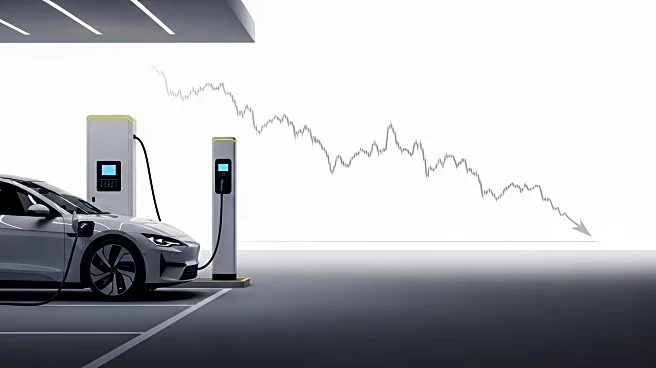What's Happening?
Tesla has reported a significant increase in vehicle deliveries for the third quarter, surpassing expectations with a 7% rise compared to the same period last year. Despite this positive sales performance, Tesla's stock experienced a sharp decline of 5.1%. Analysts attribute this drop to the expiration of U.S. electric vehicle tax credits, which had previously bolstered demand. The company had offered various incentives, such as discounts and free supercharging, to maintain delivery numbers. However, concerns are growing that demand may weaken in the fourth quarter as these incentives and tax credits fade.
Why It's Important?
The decline in Tesla's stock highlights the sensitivity of the electric vehicle market to government incentives and consumer demand fluctuations. The expiration of tax credits could pose a significant challenge for Tesla, potentially impacting its profit margins and sales figures. This situation underscores the importance of policy support in the growth of the electric vehicle industry. Investors and stakeholders are closely watching how Tesla navigates these challenges, as its performance can influence broader market perceptions and investment in the EV sector.
What's Next?
Looking ahead, Tesla is expected to face continued pressure on its profit margins. Analysts from Goldman Sachs suggest that while the expiration of tax credits is a headwind, upcoming model launches and seasonal factors could provide some relief. Tesla's third-quarter earnings report and a shareholder meeting scheduled for November 6 are anticipated events that could offer further insights into the company's strategy and financial health. Investors will be keen to see if Tesla can reassure them about its long-term profitability prospects.











